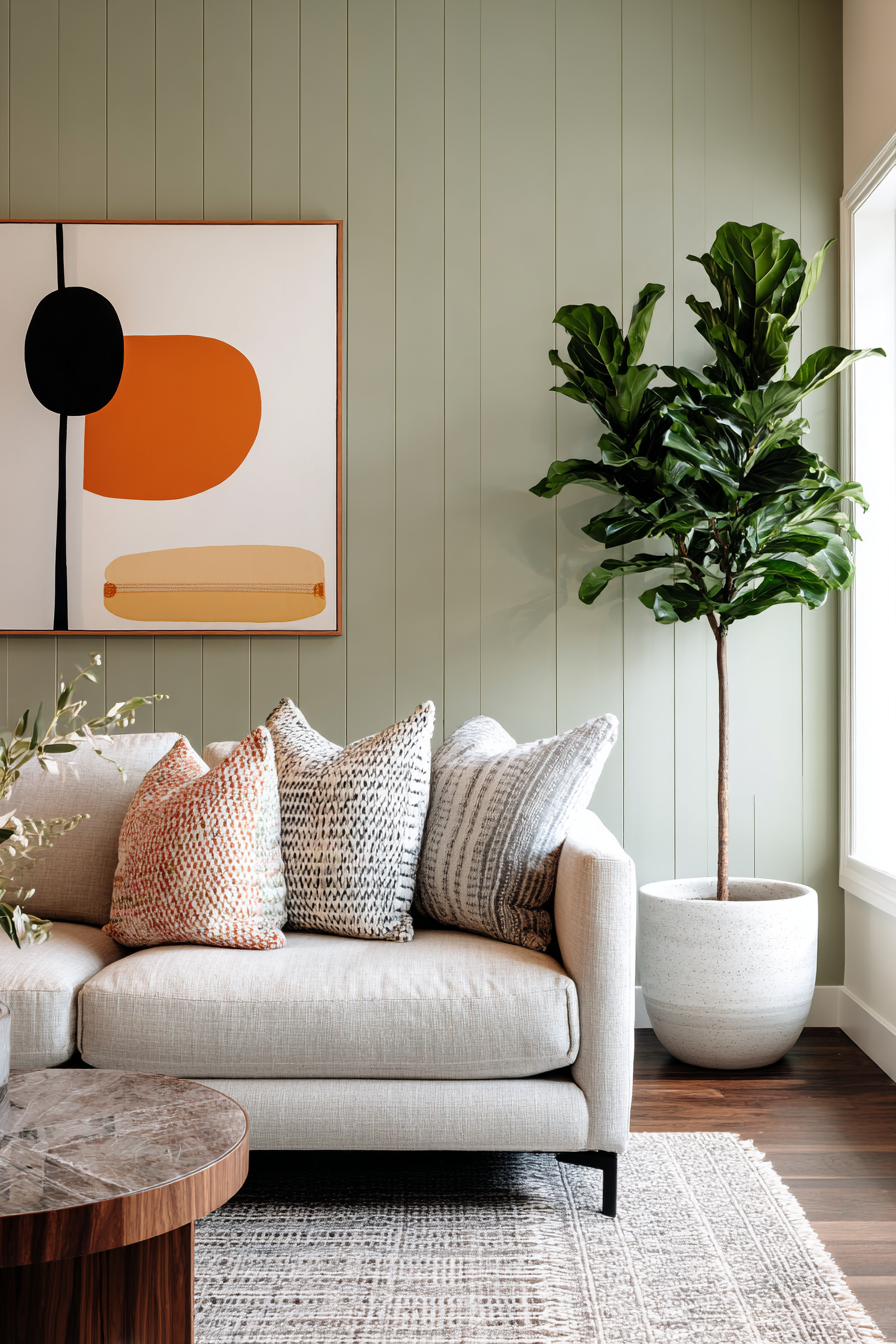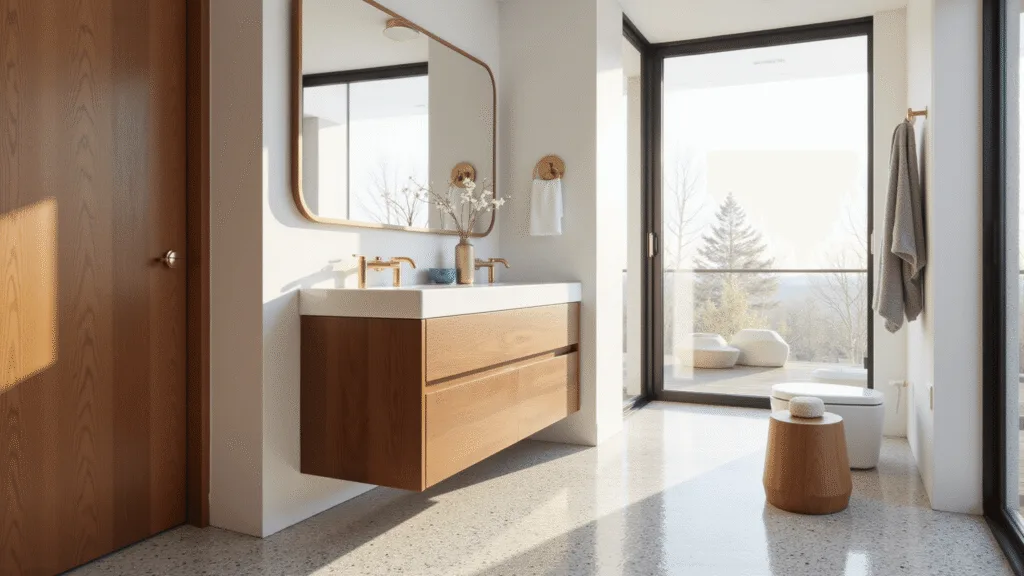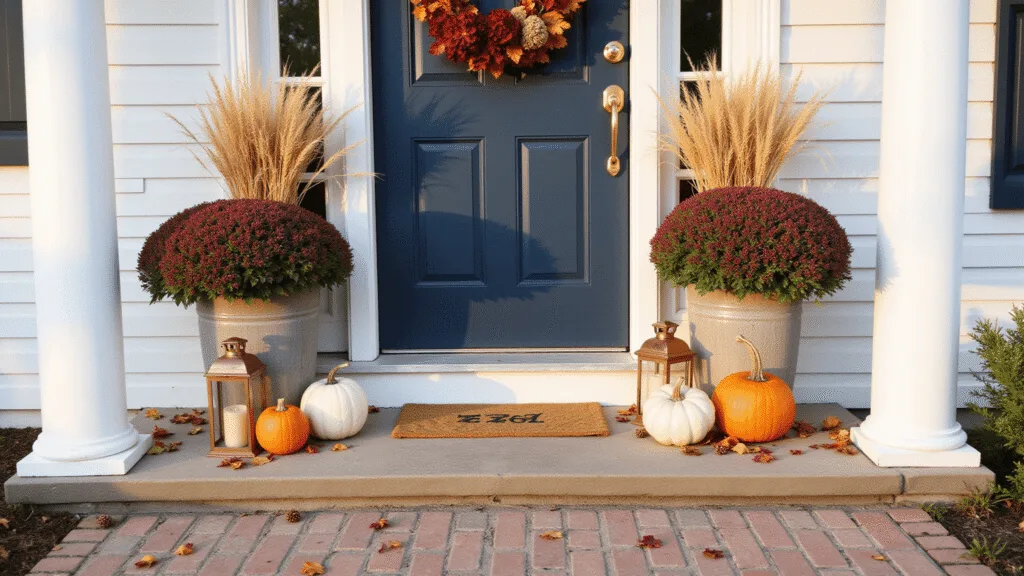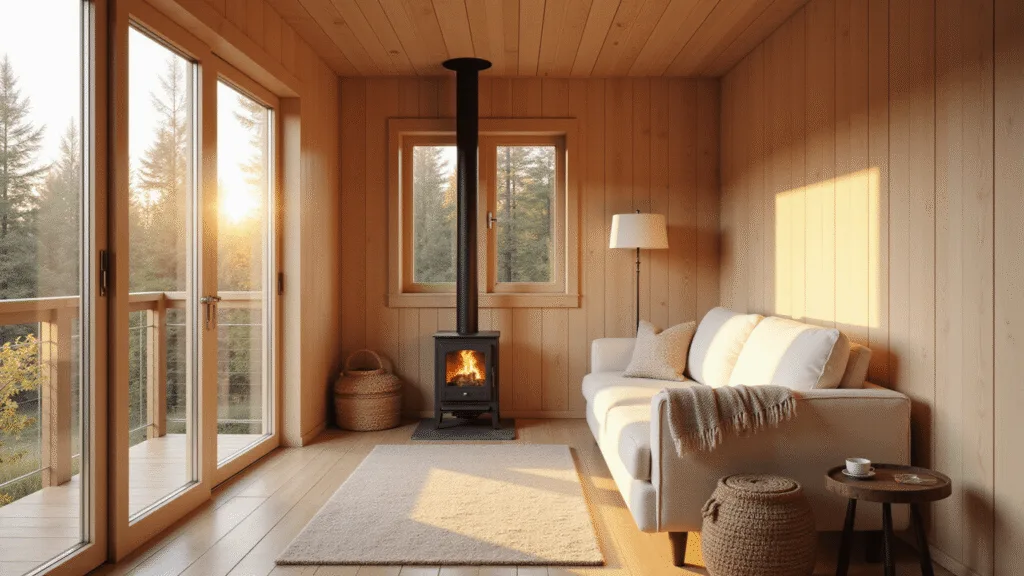Why Sage Green Works Magic in Living Rooms
Sage green isn’t just another color trend. It’s nature’s neutral that somehow manages to be both calming and interesting at the same time.
I’ve found that sage green walls create this incredible backdrop that makes everything else in the room look more expensive. Weird but true! The soft, muted tone has enough gray in it to feel sophisticated, but enough warmth to feel welcoming.
When I first painted my walls Sage Advice by Benjamin Moore, my neighbor walked in and said “It feels like I can breathe better in here.” That’s exactly what I was going for!

Wall Color Magic: The Foundation of Serenity
The biggest impact came from painting my walls. I initially chickened out and just did an accent wall behind my sofa, but two weeks later I went all-in and painted the entire room.
Some tips if you’re considering sage green walls:
- Test your paint samples at different times of day – sage can look dramatically different in morning vs. evening light
- Choose a sage with undertones that complement your flooring (mine has slight blue undertones that work with my oak floors)
- Don’t forget the ceiling! I painted mine a 25% lighter version of my wall color and it made the room feel taller
If you’re renting or scared of commitment, try removable sage green wallpaper instead. My sister did this in her apartment and it looks fabulous.

Creating Balance: The Neutral Dance Partner
Here’s what I learned the hard way: sage green needs neutral friends to really shine.
After my paint job, I immediately noticed how my bright yellow throw pillows suddenly looked cheap and jarring. Not the vibe I wanted!
I switched to cream, taupe, and soft gray accessories and the difference was night and day. The room instantly felt like a fancy hotel suite rather than a chaotic mess.
My favorite neutral companions for sage:
- Cream linen curtains that puddle slightly on the floor
- A chunky oatmeal throw blanket with subtle texture
- White ceramic lamps with natural linen shades
- Warm wood side tables (I thrifted mine for $30!)

Texture Is Everything (No, Seriously)
Listen, if you take one thing from my experience, let it be this: TEXTURE MATTERS.
Sage green can fall flat if everything is smooth and one-dimensional. I learned to layer different textures to bring the room to life:
- A nubby wool rug in a slightly lighter sage tone
- Velvet throw pillows in deep forest green for contrast
- Woven baskets for storage and visual interest
- Ceramic pots with subtle glaze variations
- Rattan pendant light that casts beautiful shadow patterns
This mix of textures creates depth without needing tons of different colors. It’s like magic for making a monochromatic room feel rich and interesting.

The Accents That Make It Special
Small touches of complementary colors can make sage green sing. I’ve found that limited pops of terracotta, muted blues, and even small touches of brass create this sophisticated palette.
What worked best for me:
- A vintage terracotta vase that I found at a garage sale ($5!)
- Brass picture frames for family photos
- A single navy blue lumbar pillow on my armchair
- Natural wood photo frames with black and white family photos
Just remember – less is more with accent colors. Too many competing colors will kill the calm vibe we’re trying to create here.

Plants: The No-Brainer Addition
I mean, obviously plants and sage green are a match made in heaven. But there’s an art to doing it right.
In my living room, I’ve mixed:
- One statement floor plant (a fiddle leaf that somehow hasn’t died yet)
- Small potted herbs on my windowsill (rosemary and thyme that smell amazing)
- A hanging pothos that adds movement
- One good quality faux plant for the dark corner where nothing would survive
The different heights and textures create this lush feeling without turning your living room into an actual jungle.

Rustic Touches That Feel Like Home
My sage green living room really came together when I added some rustic elements. These pieces ground the space and keep it from feeling too precious or perfect.
My favorite rustic elements:
- An old wooden coffee table with visible knots and imperfections
- A vintage mirror with slightly tarnished edges
- Open shelving made from reclaimed wood
- A stone vase that’s slightly asymmetrical
These natural, imperfect elements play perfectly with sage green’s earthy quality. They make the space feel collected over time rather than ordered from a catalog.

Lighting That Sets The Mood
Can we talk about lighting for a sec? It can make or break a sage green room.
I learned that sage looks amazing in natural daylight but can go a bit muddy in poor artificial light. My solutions:
- Removed heavy curtains and just use sheer panels for privacy
- Added a warm-toned floor lamp in the dark corner
- Installed dimmer switches on all overhead lights
- Used candles strategically for evening ambiance
The golden glow of warm lighting against sage green walls creates this cozy atmosphere that makes everyone want to linger longer.
The Final Touches That Make It Home
After nailing the big stuff, it’s the little personal touches that make a sage green living room feel like YOURS.
For me, that included:
- A gallery wall of family photos in matching frames
- A bowl of pinecones I collected on walks
- Books stacked horizontally as mini display platforms
- A handmade throw blanket from my grandmother
These personal elements tell your story and keep the room from feeling like a staged magazine photo.
My Top Lessons Learned
After living with my sage green living room for over a year now, here’s what I wish







